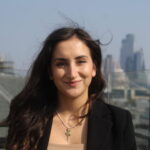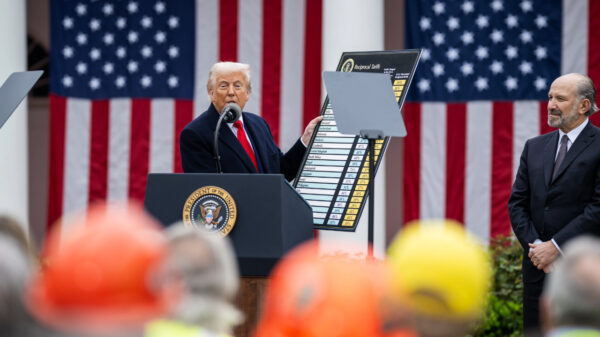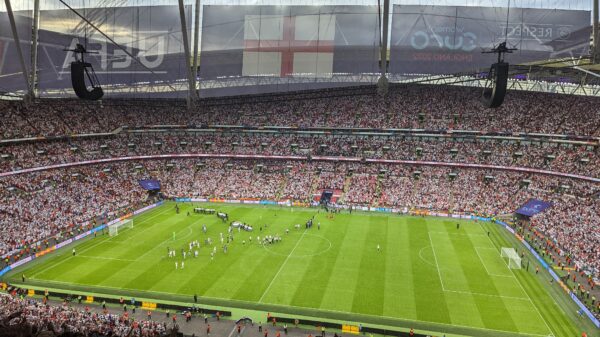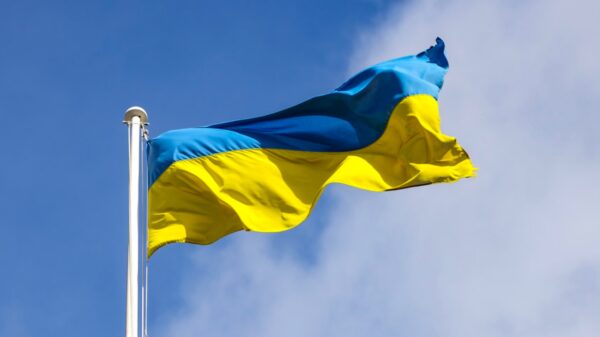Editor-in-Chief Nia Simeonova interviews Professor Angela Stent – an expert on Russia who served as a U.S. intelligence officer and dined with Vladimir Putin 15 times.
Rushing from one room to the other, Professor Angela Stent seamlessly switches topics between the upcoming U.S. election, Vladimir Putin and the Russian Empire. Her purple earrings sparkle as she speaks, as if winking at her perfectly matched violet coat.
It is 29 October and we are sitting in an office in the King’s Building, minutes before Prof Stent is set to deliver the Engelsberg Applied History Annual Lecture in the Bush House Auditorium.
Professor Angela Stent is a distinguished foreign policy expert, specialising in U.S.-Russia relations and the current Director of the Centre for Eurasian, Russian & East European Studies at Georgetown University. She worked in the U.S. government twice – from 2004 to 2006 she was the national intelligence officer for Russia and Eurasia at the National Intelligence Council. Before that, she served in the Office of Policy Planning at the U.S. Department of State in both the Clinton and Bush Administrations.
Despite her weighty career in an undoubtedly vicious field, an inviting smile lights up Prof Stent’s face throughout our conversation. She is a fast speaker – perhaps to match her quick mind.
Russia and Putin
As we sit down, I cannot shake my disbelief that the author of the New York Times piece ‘Mugged In Moscow’ from 1978 would go on to spend her career studying that same place – the then Soviet Union. As the young British-born American was trying to report that her wallet had been stolen, the Soviet policeman was adamant: “We don’t have crime in the U.S.S.R.”
During her studies at Cambridge University, she got a scholarship to travel by boat from Tilbury to Leningrad. “I kind of got the bug then,” says Prof Stent. There is my answer.
“I have to say it’s very sad now because I can’t go back to Russia. So it’ll really be the first time since the Soviet collapse where I’m not able to go back.”
Being an expert on Vladimir Putin, Prof Stent is one of the few people who have first-hand experience with the Russian president – she dined with him not once but 15 times.
Resisting the urge to ask how the Russian dictator likes his steak, I redirect my thoughts to Angela Stent’s 2019 book ‘Putin’s World: Against the West and With The Rest’. Perhaps at one of those dinners, Prof Stent perceived one crucial detail, central to the book, that had escaped many Western leaders: “He really doesn’t accept the collapse of the Soviet Union.”
“A lot of Russians don’t understand how that could have happened. It was the largest, it still is the largest country in the world. It was a nuclear superpower. It wasn’t defeated in a war,” explains Prof Stent. Because Putin, along with many of his colleagues, cannot conceive of a Russia that is not a great power, it is much easier to blame outside forces for what happened, she says.
Putin doesn’t believe in the self-determination of states – “He really just believes that there are only a few truly sovereign states in the world, Russia, China, the U.S. and India and that no other country really has full sovereignty.” A grave warning for the war in Ukraine.

Ukraine
Two and a half years after the Russian invasion of Ukraine, the question posed by academics, journalists and political figures remains as pertinent as at the start – will an invitation for Ukraine to join NATO force Putin to concede or is accepting a neutral Ukraine the necessary evil to end the war?
Prof Stent agrees that there are people both in Europe and in the U.S. who think Ukraine should be offered NATO membership as a way to end the war. Still, “nobody has tried this yet. It would take a very unified West to agree to this. So far neither the United States nor Germany has agreed that Ukraine should be offered NATO membership anytime soon.”
Despite President Zelensky’s ‘Victory Plan’, Prof Stent is sceptical: “If that were to bring Putin to the negotiating table, Ukraine would probably have to accept, at least temporarily, the loss of some of its territory that Russia is now occupying, but in return, it would have security guarantees so that Russia couldn’t start the war again.” That wouldn’t do for Putin, says Prof Stent.
Firstly, Putin thinks Russia “can hold out and that eventually, the Ukrainians will have to make concessions”, like accepting neutrality, and secondly, “He’s awaiting the outcome of the U.S. election next week and things could change then.”
The U.S. Election
“I definitely think if he’s elected there will be a rethinking of the US’ international engagements.”
The elephant in the room. Prof Stent sees a real threat in the Trump Administration making a move towards exiting NATO. “President Trump did, as far as we know from the memoirs of John Bolton, he did seriously think about taking the US out of NATO. Congress has now passed legislation where it would be more difficult to do that because they have to vote on it.” But whether the U.S. will return to its isolationist past, that is whether it would start focusing on its home affairs first, may not depend entirely on the elected candidate.
“The mood in the US is more that the US should look more to its own problems and the enthusiasm for international engagement is probably less, and I think it’s generational too,” says Prof Stent. The post-Cold War generation of Biden and Harris sees “the need for engagement” abroad – a priority that is not so self-evident for younger voters.
“Even if Harris wins, I mean she is a committed transatlanticist, but I think that there will still be a reassessment of US policy and what the US should be focusing on.”
This makes me wonder how fragile the world order as we know it is. It could suddenly become much more of a World Disorder (the title of Prof Stent’s lecture), as Prof Stent suggested in her BRICS commentary for the Brookings Institution:
“Putin views BRICS as a key component of his quest to create a new world order where the United States and its allies can no longer dictate the political and economic rules of the international system.”
“It’s still a big question mark,” admits Prof Stent. More countries are joining the alliance and yet, they have varying interests. Still, “one thing that the war with Ukraine has done is given what people call middle powers, [the] countries in the Global South, more of an opportunity to assert their own interests and not want to take sides in what they see as this great power rivalry.”
Some Advice for Us
Conscious of the time and the important upcoming lecture, shuffling my notes, I shoot my last question and Prof Stent’s outstanding career across academia, government and foreign affairs was sure to make for a good answer – what is your advice to students?
“I fear that if we don’t have future generations who understand the world well, then it’s really to the detriment of all our countries. So get involved, you know, whether it’s in public service or in the private sector, get involved and keep involved.”


















